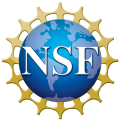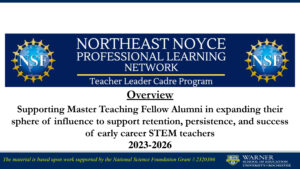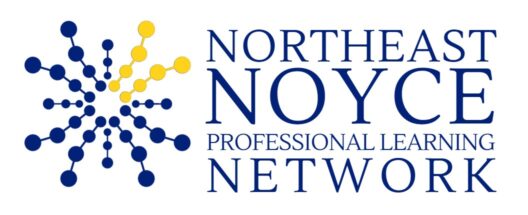
Teacher Leader Cadre Program
This online program is designed to support MTF alumni in expanding their sphere of influence to reach early career STEM teachers located in the Northeast through structured professional learning activities.
Program Requirements
- Open to all Track 3 Noyce Master Teaching Fellow (MTF) alumni and MTFs in at least Year 3 of their Noyce program
- Applicants must either be in a full-time position in the Northeast Region of the United States with responsibility of teaching in K-12 math, science, or other STEM subject areas OR have a current role (including leadership) with direct contact to K-12 math, science, or other STEM teachers.
- Commitment to participate in all project activities including participation in the Cadre Leadership Meetings and Professional Learning Facilitation (Video Clubs, Professional Learning Communities, and/or Coaching Cycles).
- Commitment to attend and present at Noyce Northeast Regional Conferences in Fall 2024 and Spring of 2026.
Regional Conferences for the Northeast Noyce Network
Members of the Northeast Noyce Teacher Leader Cadre will play key roles at the Regional Conferences facilitating breakout sessions, serving on voices from the field panels, and supporting collaborative conversations.
The Northeast Regional Noyce Conferences will capitalize on the leadership qualities inherent in the Northeast Noyce network. The Northeast Regional Noyce Conferences create a space for the Northeast Noyce community to collectively come together to explore issues and challenges in their work. The Northeast Regional Conferences aim to inspire members to try new things and make meaningful changes in their teaching or programs.
Boston 2024 and Philadelphia 2026
“Sharing Teacher Knowledge: Voices from the Field about the Future of STEM Education”

Professional Learning Communities (PLCs)
PLCs are facilitated by experienced members of the Northeast Noyce Teacher Leader Cadre. The Professional Learning Communities provide opportunities for ongoing learning and collaboration by bringing together teachers through a common theme or goal. PLCs create a structure for teachers to gain new insights, knowledge, and skills through content-specific work.
An Example of a Professional Learning Community:
Orchestrating Mathematical Discussions, based on the work of Margaret Smith and Mary Kay Stein described in their book, 5 Practices for Orchestrating Productive Mathematics Discussions (NCTM, 2018)
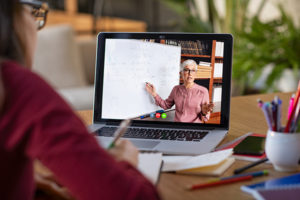
1:1 Coaching for Early Career Noyce STEM Teachers
The Northeast Noyce Video Club program provides a system for early-career STEM teachers, particularly Noyce teachers, to examine their own teaching in their own classrooms through the use of video. Video Clubs are facilitated by experienced Noyce Teacher Leader Cadre members and engage STEM teachers in reflecting on specific teaching practices including the teaching of specific discipline content. The Video Clubs provide opportunities for peer-to-peer learning allowing teachers to learn from each other’s teaching strategies and practices.
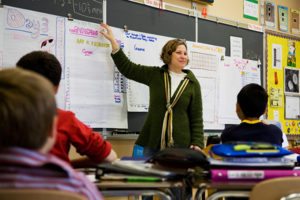
STEM Teaching Video Clubs
The Northeast Noyce Video Club program provides a system for early-career STEM teachers, particularly Noyce teachers, to examine their own teaching in their own classrooms through the use of video. Video Clubs are facilitated by experienced Noyce Teacher Leader Cadre members and engage STEM teachers in reflecting on specific teaching practices including the teaching of specific discipline content. The Video Clubs provide opportunities for peer-to-peer learning allowing teachers to learn from each other’s teaching strategies and practices.
THANK YOU!
This material is based upon work supported by the National Science Foundation award #2320386. Any opinions, findings, and conclusions or recommendations in this material are those of the authors and do not necessarily reflect the views of the national science Foundation.
